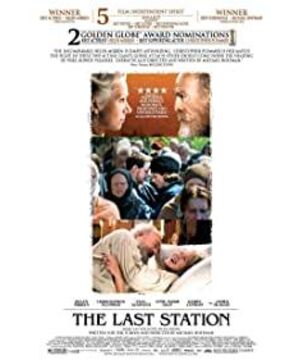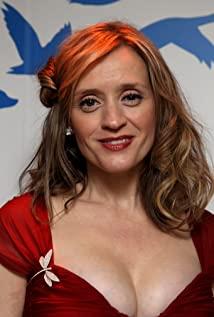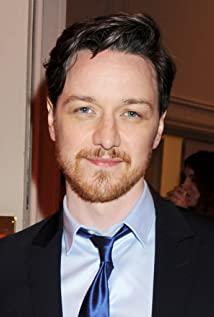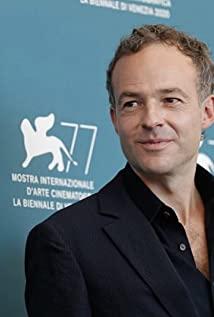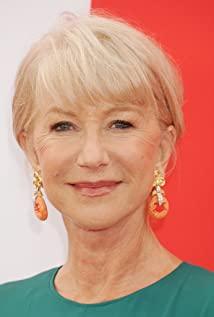the early 1990s, when I read the memoirs of Tolstoy’s eldest daughter, in addition to being emotional about Toon ’s pursuit of ideals, he was also very concerned about the issue of property inheritance. Towon's screaming wife, Sophia, was impressed. In many research articles on Toon, I found that Toon’s wife was described almost exclusively as selfish and vain, as if she was a stumbling block to Toon’s realization of his ideals in life, and that eventually led to the 82-year-old Toon’s death to an unknown child. The culprit of the station... I always feel that this one-sided interpretation is too biased after reading. Even though Toweng’s self-conception of the social model is beautiful, it cannot be said that many of his visions tend to be idealized, and the inability to be realized is due to many realities. It is caused by factors, and no one can obstruct it at all.
Fortunately, in the film "The Last Station" directed by Michael Hoffman and adapted from the novel of the same name by the famous biographical novelist and poet Jay Parini, the character of Sophia interpreted by the acting school Helen Mirren Rich, full of emotions, emotional turmoil, and distinct levels. He was 12 years younger than Toon, lived with Toon for 48 years, gave birth to 13 children (of which 5 died), and had difficulty writing 3,000 pages. The countess, who had copied the manuscript of "War and Peace" neatly and neatly seven times, suddenly appeared in front of her eyes. One of the reasons Sophia opposes her husband’s sharing of property with civilians is also because a mother considers the interests of her children.
The film reproduces the last fragment of Toon’s life, from the perspective of others involved in it, that is, Toon’s secretary Valentin (played by James McAvoy) to look at the final moments of the literary master, and the combination of reality and fiction in the narrative. It seems to be meant to express the positive and negative effects of love. The real part is the love-hate entanglement between Toon and his wife. They love deeply and hate too much. Their marriage and love life that cannot be separated and cannot get along has exhausted their lives. As a comment said, "If there is love in life, then those in love will have to suffer; if there is no love, then those who do not love will have to experience life’s dying and contradictions, so this true story appears complicated and contradictory. It’s interesting, and the director gave it real emotions.” The virtual part is the love between Valentin and Toron believer Martha, which reflects Toron’s influence on young people.
It can be said that Sonia is Tolstoy’s life partner, but not his spiritual partner. Although she understands her husband’s writings, she cannot agree with the reform of the distribution system. , And Sonia is still an aristocrat, with exquisite food and gorgeous clothing. I personally guess that the initial relationship between the Tolstoys should be like Levin and his wife in "Anna Karenina". Levin in Tolstoy's works is a very autobiographical character, a person who wants to be The aristocratic image of the agricultural system was rebuilt on the land of China, and Levin finally chose to become a reliable husband and father after a series of failures and blows. This is obviously the epitome of Toon. In his later years, Toon wanted to completely get rid of the shackles of the family, so he ran away from home...
Vladimir Chekov, who is committed to putting Tolstoy into practice, seems to be Toon’s spiritual partner, so there is a clear-cut opposition and struggle between the "radical" Chekov and the "conservative" Sonia. Chekov wants to make Toon a god-like existence, and wants him to He became a role model for propaganda, so he committed to getting Toon to make another will, and to reach Toon’s signature of handing over his copyright to the public. He also worked hard to make Sonia, who is thwarted and emotionally irritable, stay in Toon and The face was lost in front of the media... This time Paul Giamatti played an uncomfortable role, especially in the end, even if she lied, she had to isolate Sophia and prevent her from seeing Toon in the dying.
In order to reproduce the struggle between these two powerful and annoying forces in Toon’s later years, the film set up a picture frame on the wall. For the first time, Sonia removed Chekov’s picture frame on the wall in front of her husband’s desk and replaced it with A photo of herself and her husband. For the second time, Sonia, who was angry that her husband signed the copyright agreement without telling her, fired at the initiator and the plane Chekov on the wall, completely escalating the smell of gunpowder between the two. At the same time, in order to show the struggle between these two forces, an interesting plot appeared in the film. Chekov and Sonia each gave the new Toon secretary Valentin a diary, and Chekov asked him to record the house of Toon. Everything that happened in the mansion was reported in time, that is, the supervision task was handed over to Valentin, and Sonia only asked Valentin to objectively record what she saw, so Valentin was busy in two diaries in the film. The lens of the notebook.
The film screen is quite nostalgic and retro, with verdant fields, quiet mansions, exquisite dining tables, and Yabo’s study rooms. At that time, the life of the country nobles flowed in the light and shadow, and the most worth watching part of the film was the performance of the actors. A commentary said-"Under the guidance of Michael Hoffman, the entire film presents a rhythm that is generally poetic. Of course, the outstanding performance of the two leading stars Christopher Plummer and Helen Mirren also contributed. No."
Among them, Helen Mirren, who is of White Russian descent, performed heartily in the film. Whether the same old Plummer, the mature Giamatti, or the descendant McAvoy played opponents, Mirren was able to play with ease. She used her dramatic and infectious performance to show Sophia’s pain and resentment, and she created a very individual and assertive Mrs. Towon. Among them, she ran to the pond all the way to the pond after her husband ran away from home. The physical and mental exhaustion of rolling down the ferry into the water reveals a woman's decisive mood. With her outstanding performance in this film, Mirren won the best actress of the Rome Film Festival, once again well-deserved.
http://nicolew.blog.hexun.com/51729514_d.html
View more about The Last Station reviews


